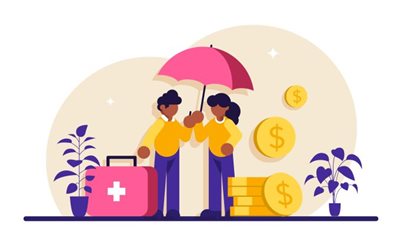No matter how much we prepare for potential setbacks, the unexpected can always happen. Your car can break down, your roof could start leaking, or you could be facing unemployment. If you think about your financial picture, do you have enough to cover (or at least offset) any unforeseen costs? If your answer is no right off the bat, then establishing an emergency fund should be a priority. This Credit Union of Denver blog article will explain why you need to have an emergency fund and tips to help you get started saving.
Why Is It Important to Have an Emergency Fund?
An emergency fund is a liquid savings account with money set aside just in case something financially unexpected occurs. This account creates a money buffer, allowing you to stay afloat in a time of financial need without relying on credit cards or high-interest loans.
How Much Should I Have in An Emergency Fund?
 The answer depends on your financial situation, but as a rule of thumb, it’s a good idea to have three to six months of living expenses saved. You’ll want to be able to cover rent or mortgage, utilities, transportation, food, insurance, and any other regular expenses you may have.
The answer depends on your financial situation, but as a rule of thumb, it’s a good idea to have three to six months of living expenses saved. You’ll want to be able to cover rent or mortgage, utilities, transportation, food, insurance, and any other regular expenses you may have.
How Do I Start Saving?
The idea of saving up that amount of money may seem daunting, but it doesn’t have to be! Any amount you can contribute is a good start. Set a monthly savings goal, then sit down and figure out what your expenses are, where you can cut back, and how much you can reasonably afford to put away. Set automatic transfers to your savings account, so you start saving without even thinking about it.
How Do I Know When to Use It?
There may be times when you will be tempted to use the money on a significant purchase, that’s why you should create a list of acceptable expenses to ensure that they are actual emergencies. This could include:
- Your living costs during periods of unemployment
- Sudden medical problems
- Repairs to your home because of a natural disaster, fire, or a serious furnace-type breakdown

- Unanticipated veterinarian bills
- Unforeseen vehicle repairs
- Surprise tax bills
You want to be able to focus on the crisis, not raising money to cover it or burdening yourself with debt.
Saving vs. Paying Down Debt
There are pros and cons to paying off debt before building an emergency fund. If you are paying off high-interest debt, that generally should come first, because it is such a financial hardship. That said, it’s good practice to build the sound financial habit of paying even a little toward an emergency fund while still reducing high-interest debt. Your fund will continue to grow, if only slowly, as your debt load diminishes.
Bad things can happen to anyone, and working toward financial health should be just as much a priority as looking after your physical health. Regardless of how you choose to build your emergency fund, the most important thing is that you start saving! You’ll have peace of mind knowing that you’re prepared just in case the instance arises where you need that cushion.
Check out our interest-earning savings options to get your emergency fund started. For help figuring out how to fit an emergency fund into your budget or other financial planning questions, schedule an appointment with one of Credit Union of Denver's Financial Coaches.